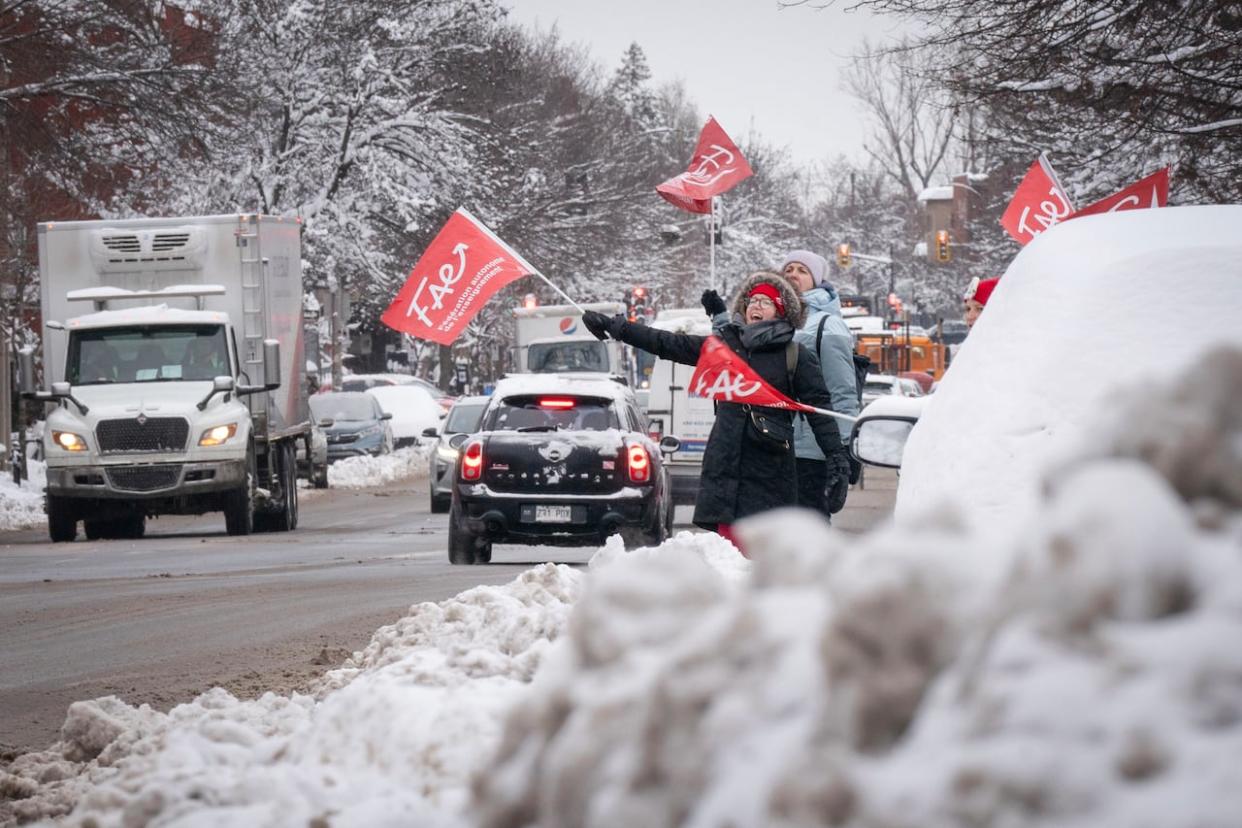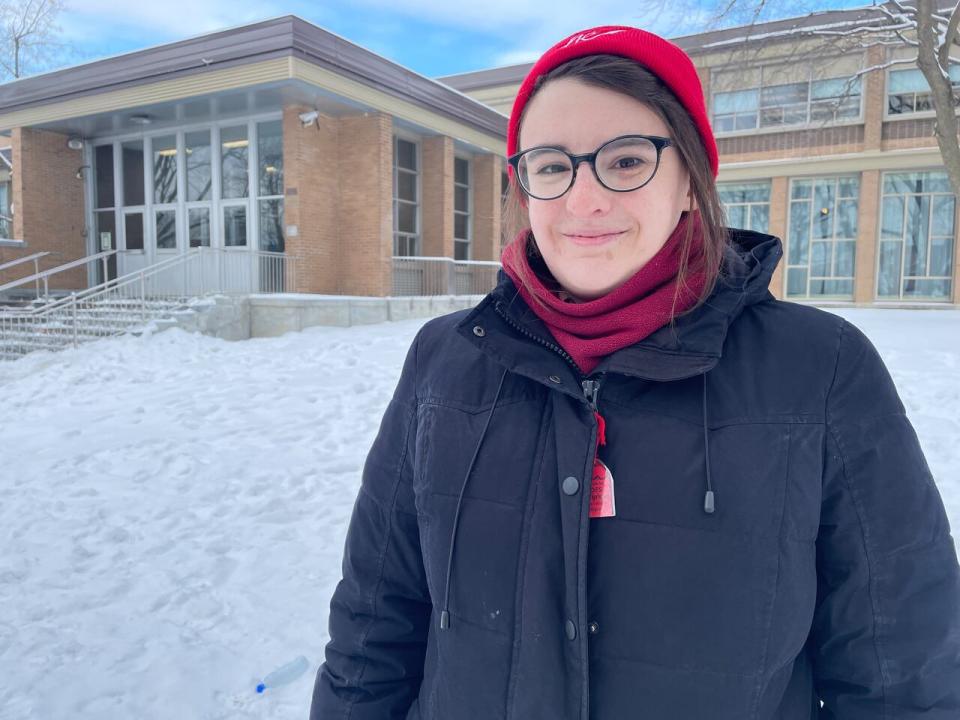Several FAE teachers' unions advise members to reject deal as voting begins in Quebec

The tentative deal struck between the Quebec government and a federation that represents about 66,000 teachers may be in jeopardy.
Radio-Canada has learned that the leaders of several unions affiliated with the Fédération autonome de l'enseignement (FAE) have told their members not to accept the agreement in principle as voting begins Wednesday.
Those unions are the Syndicat de l'enseignement de la Pointe-de-l'Île (SEPÎ), which represents some 4,400 teachers in Montreal's east end, the Syndicat des enseignants de la Haute-Yamaska (SEHY) in Granby, which represents 2,000 members and the Syndicat de l'enseignement de la région de Laval (SERL), which represents more than 6,300 teachers.
For the agreement in principle to be adopted, five of the nine FAE-affiliated unions must accept it. Those five unions must also make up the majority of the FAE's 66,500 members, according to the principle of a double majority.
The final decision will be announced on Feb. 7.
The SEPÎ is voting Wednesday — the first of nine unions under the FAE.
The SEHY was scheduled to vote on Jan. 20, but the meeting will be pushed to another date after union members complained about gathering on a Saturday.
In a message sent to members, a copy of which was obtained by Radio-Canada, the SEHY board of directors said that it based its recommendation to reject the deal on, among other things, "the government's apparent contempt for the teaching profession."
They also said the deal as it stands does not address the central issue at the heart of the work stoppage: Class composition.
Meanwhile, two other FAE-affiliated unions, the Syndicat de l'enseignement de l'Outaouais and the Syndicat de l'enseignement de l'ouest de Montréal (SEOM), have advised their members to accept the agreement.
The other five affiliated unions, operating in Laval, Quebec City, the Laurentians, Montreal and the Montérégie, are expected to vote in the next few days.
What's in the current tentative deal?
The agreement in principle reached between the FAE and Quebec in late December, a copy of which was also obtained by Radio-Canada, includes $33.3 million for 2024-2025 to help reduce the workload for some teachers.
The sum includes $19.1 million for primary schools to have extra resources for evaluating students with learning challenges. At the high school level, $14.2 million is earmarked for the same purpose.
At the preschool level, an annual sum of $5.3 million will be allocated for the addition of part-time resources in disadvantaged areas.
Some 4,000 new classroom aides will also be added.
Under the agreement, teachers will get an average salary increase of 17.4 per cent over five years.
The proposed agreement in principle came after 22 days of strike action, which closed about 800 schools and kept 368,000 students home. Some 40 per cent of teachers in the province's school system are represented by the FAE.
Meanwhile, a coalition of public sector unions known as the common front are scheduled to hold general assemblies from Jan. 15 to Feb.19.
More than half of the 420,000 workers represented will have to accept the agreement for it to become a collective agreement.
Martin Verrette, a special needs teacher at a school in Montreal, said he would vote no to the agreement in principle.
He said the agreement settled the issue of salaries but did not help class composition.
"For me, the agreement is not enough," he said. "Our first point when we decided to go on strike was that we wanted to have some change to the class composition. We need to have more homogeneous classes and we need to have more help for the kids that have special needs."
Verrette said he thinks there needs to be more classes for newcomers to help them master French before they are included in regular classes and more classes specifically for students with difficulties.
Marion Miller, a high school art teacher in Montreal, said she, too, plans to vote against the agreement in principle.
"There's some positive in it," she said, referring to the salary increases, "but in terms of concrete changes to our workload day to day in the classroom, there's not a lot of movement, so that's disappointing."

Marion Miller, a high school art teacher in Montreal, said she plans to vote against the agreement in principle. (Sharon Yonan-Renold/CBC)
The agreement in principle includes a mechanism to address class composition, Miller said. The mechanism would set a threshold for the number of students having difficulties in a class, after which more resources would be made available to help, but Miller said that doesn't go far enough.
There needs to be "balanced classes" she said, to make sure teachers don't have students "overloaded with different needs or different learning challenges."

